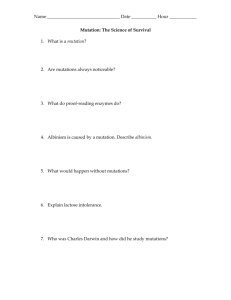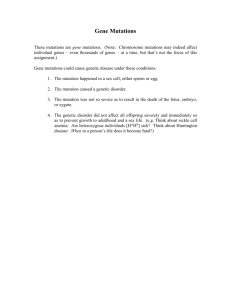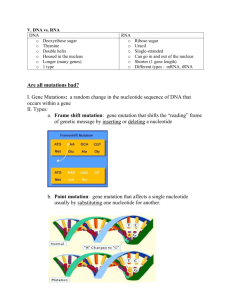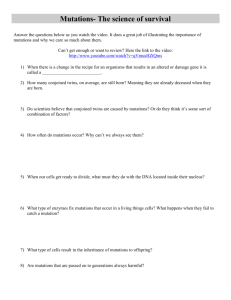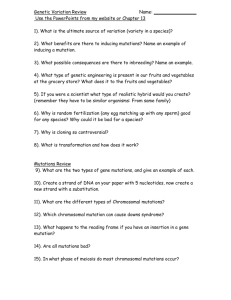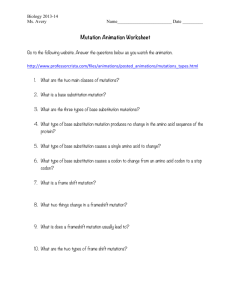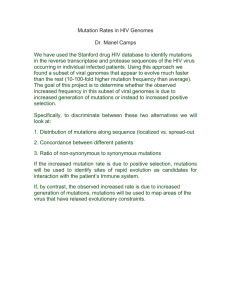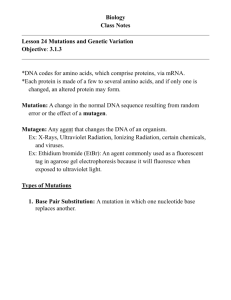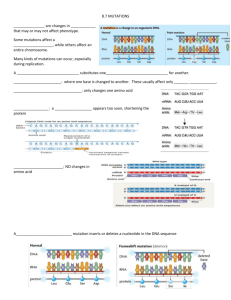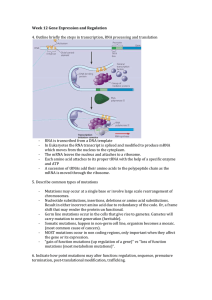desease-mutation
advertisement
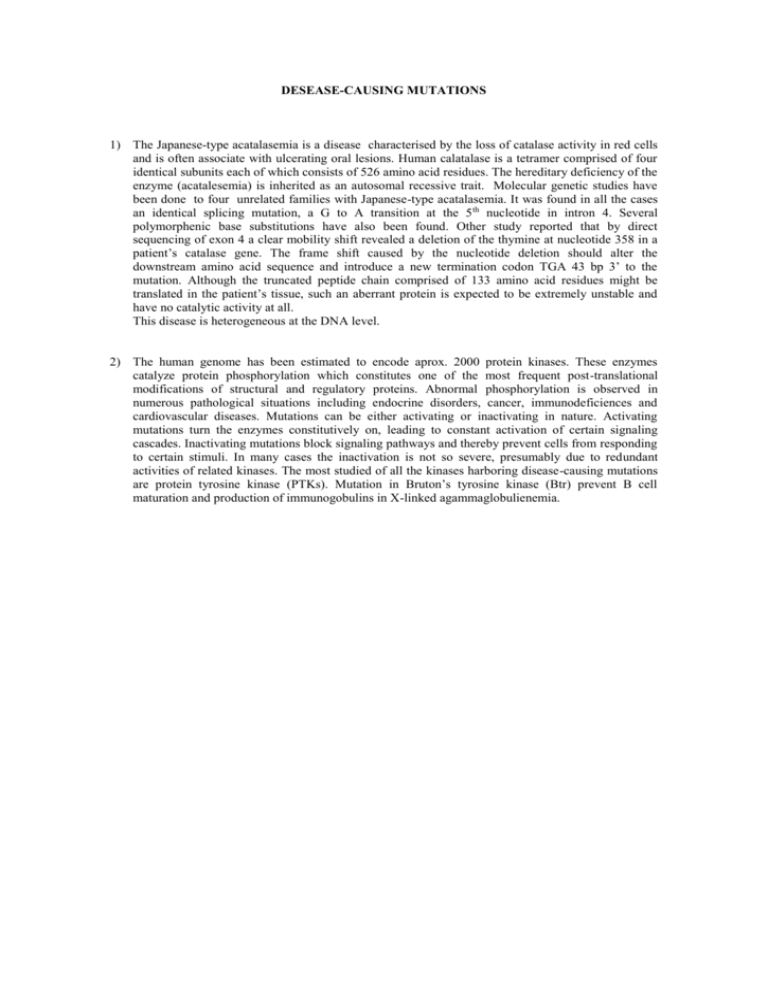
DESEASE-CAUSING MUTATIONS 1) The Japanese-type acatalasemia is a disease characterised by the loss of catalase activity in red cells and is often associate with ulcerating oral lesions. Human calatalase is a tetramer comprised of four identical subunits each of which consists of 526 amino acid residues. The hereditary deficiency of the enzyme (acatalesemia) is inherited as an autosomal recessive trait. Molecular genetic studies have been done to four unrelated families with Japanese-type acatalasemia. It was found in all the cases an identical splicing mutation, a G to A transition at the 5 th nucleotide in intron 4. Several polymorphenic base substitutions have also been found. Other study reported that by direct sequencing of exon 4 a clear mobility shift revealed a deletion of the thymine at nucleotide 358 in a patient’s catalase gene. The frame shift caused by the nucleotide deletion should alter the downstream amino acid sequence and introduce a new termination codon TGA 43 bp 3’ to the mutation. Although the truncated peptide chain comprised of 133 amino acid residues might be translated in the patient’s tissue, such an aberrant protein is expected to be extremely unstable and have no catalytic activity at all. This disease is heterogeneous at the DNA level. 2) The human genome has been estimated to encode aprox. 2000 protein kinases. These enzymes catalyze protein phosphorylation which constitutes one of the most frequent post-translational modifications of structural and regulatory proteins. Abnormal phosphorylation is observed in numerous pathological situations including endocrine disorders, cancer, immunodeficiences and cardiovascular diseases. Mutations can be either activating or inactivating in nature. Activating mutations turn the enzymes constitutively on, leading to constant activation of certain signaling cascades. Inactivating mutations block signaling pathways and thereby prevent cells from responding to certain stimuli. In many cases the inactivation is not so severe, presumably due to redundant activities of related kinases. The most studied of all the kinases harboring disease-causing mutations are protein tyrosine kinase (PTKs). Mutation in Bruton’s tyrosine kinase (Btr) prevent B cell maturation and production of immunogobulins in X-linked agammaglobulienemia.

